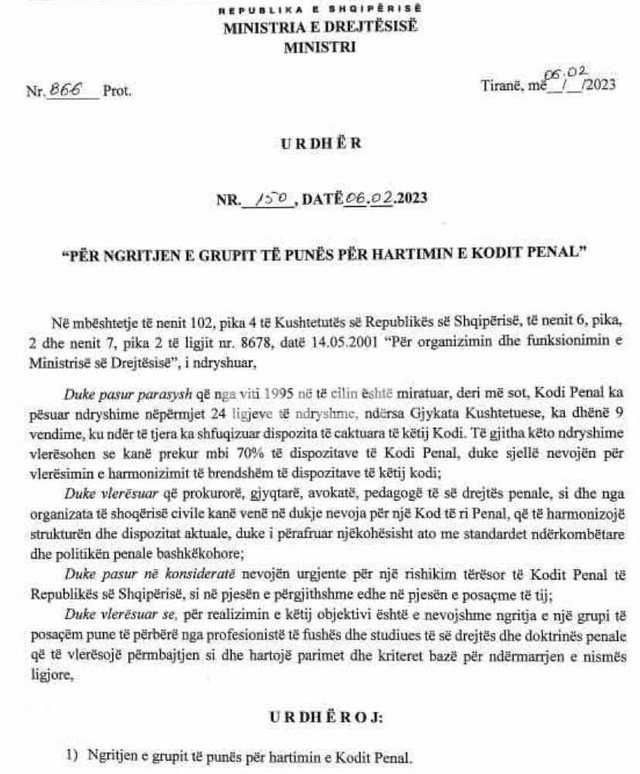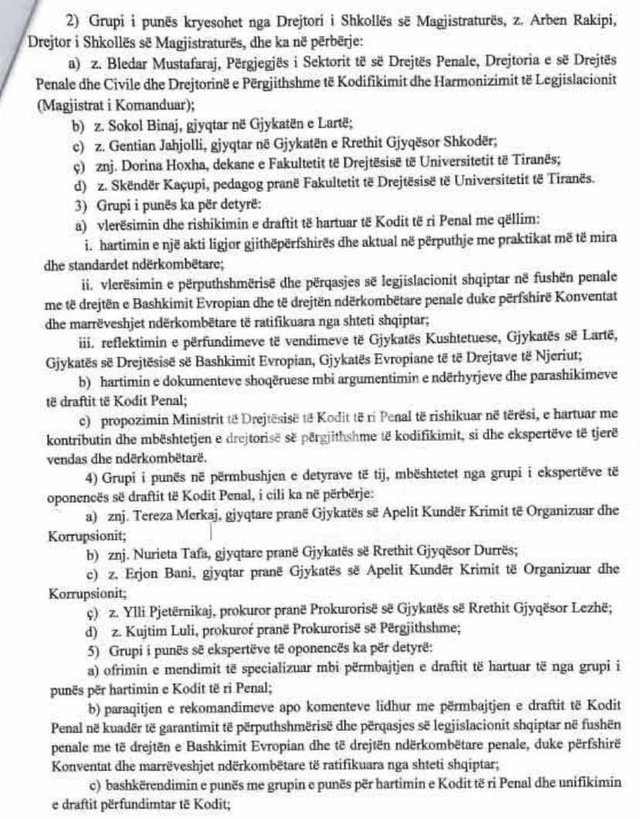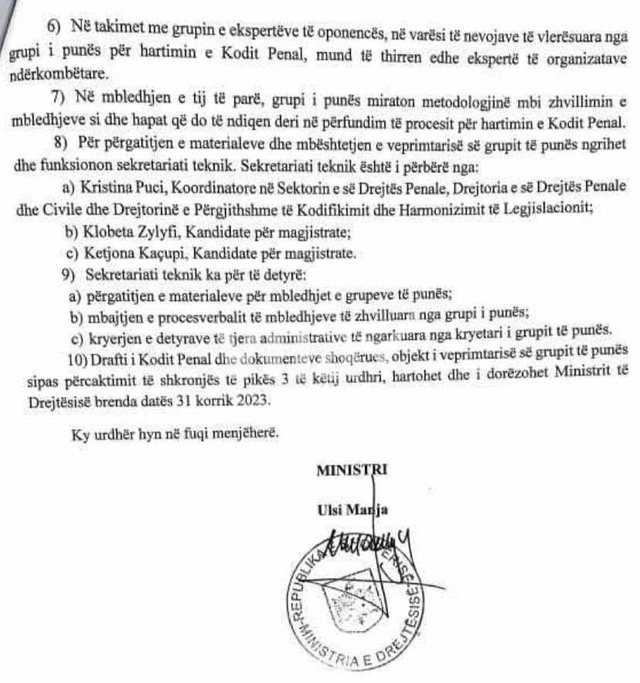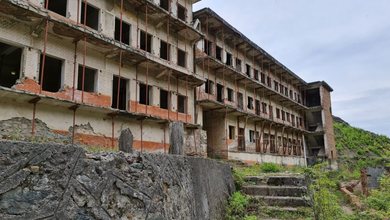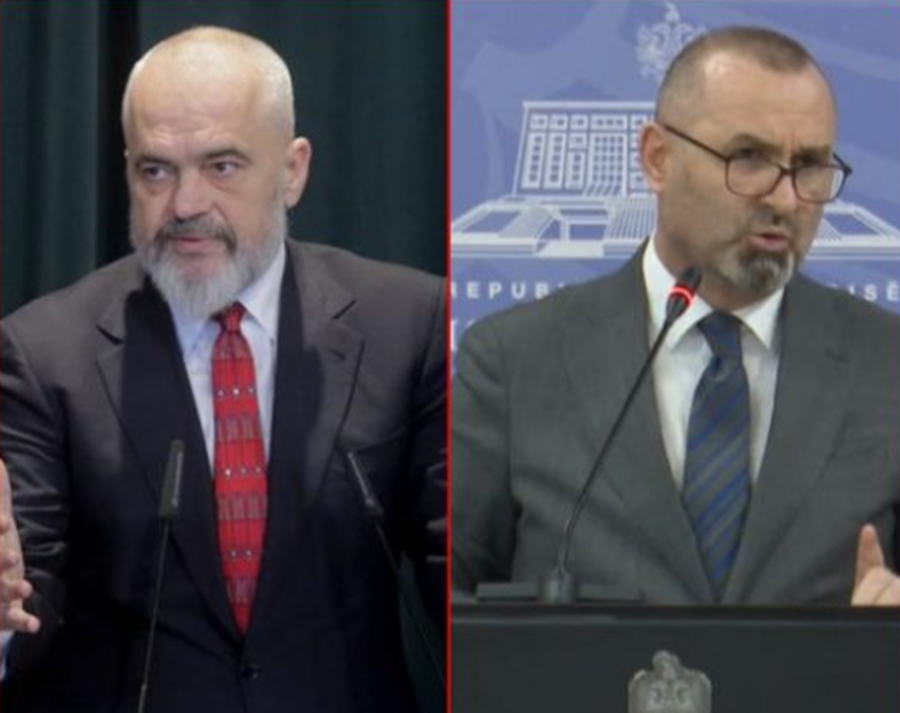
Amid the fierce controversy that erupted after the publication of the draft of the new Criminal Code, Prime Minister Edi Rama has attempted to avoid the government's responsibility for the content of this document, which has sparked strong reactions from representatives of the justice system, lawyers, jurists, and civil society organizations.
In a public reaction on the social network “X”, Rama stated that the government was not involved in the drafting of the draft, saying that the process was entrusted to an independent group of experts, led by Arben Rakipi, head of the School of Magistrates. He emphasized that currently the Council of Ministers is “only one of the parties in the process” and that it is still analyzing the draft to formulate its position.
But contrary to this official version of the Prime Minister, internal documents of the Ministry of Justice, now obtained by VNA, clearly show that this institution has been not only an active part, but also a leader of the process of drafting the new Criminal Code. Representatives of the ministry itself have been directly part of the working group that drafted the current draft.
The document signed by Minister Ulsi Manja on February 6, 2023, with order no. 150, confirms the official establishment of the working group for the drafting of the new Criminal Code. The order specifies the specific names of the experts and the tasks they have performed within the framework of this process.
The group was headed by the director of the School of Magistrates, Arben Rakipi, and its members included:
Bledar Mustafaraj, representative of the Ministry of Justice and head of the Criminal Law sector in this institution;
Sokol Binaj , judge at the High Court;
Gentian Jahjolli , judge in Shkodra;
Dorina Hoxha , Dean of the Faculty of Law at the University of Tirana;
Skënder Kaçupi , lecturer at the same faculty.
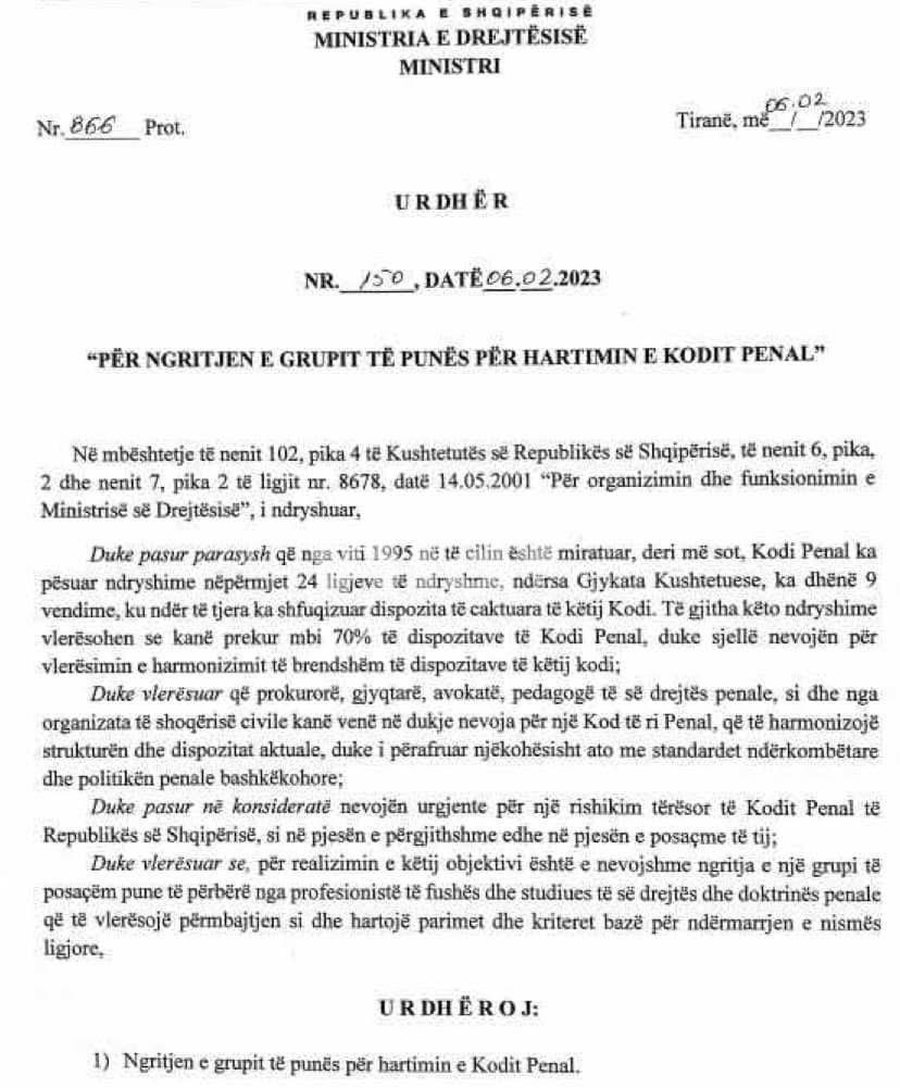
In their assistance, an opposition group has been established, composed of high-level judges and prosecutors, to ensure a critical and objective analysis of the prepared draft. This group includes Judge Tereza Merkaj (Court of Appeal for Organized Crime), Nurieta Tafa (Court of Durrës), Erjon Bani (Court of Appeal for Organized Crime), as well as prosecutors Vili Pjetërmikaj and Kujtim Luli.
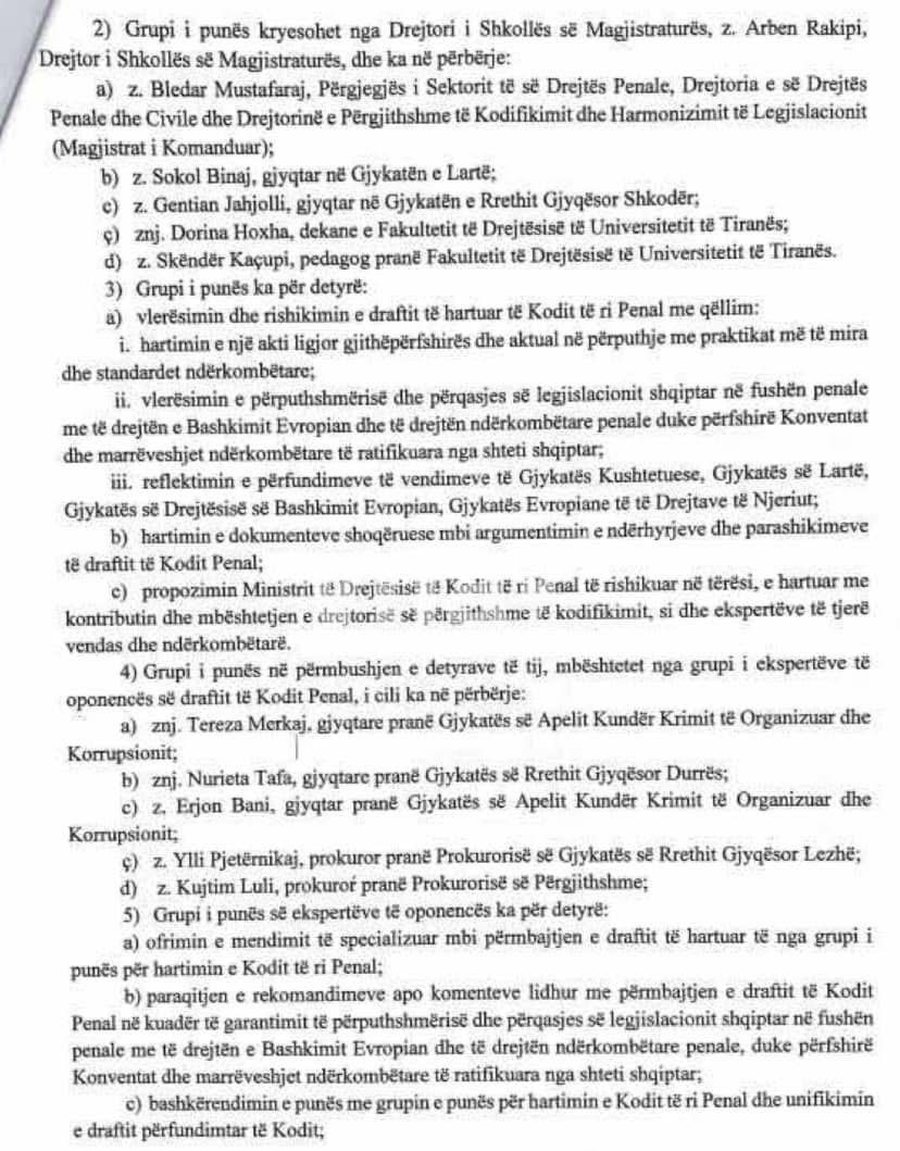
To technically support the work of these groups, a technical secretariat was also established, consisting of officials from the Ministry of Justice and two candidates for magistrates, Klobeta Zylyfi and Ketjona Kaçupi. This secretariat was tasked with preparing materials, keeping minutes and carrying out all administrative tasks related to the organization of the work.
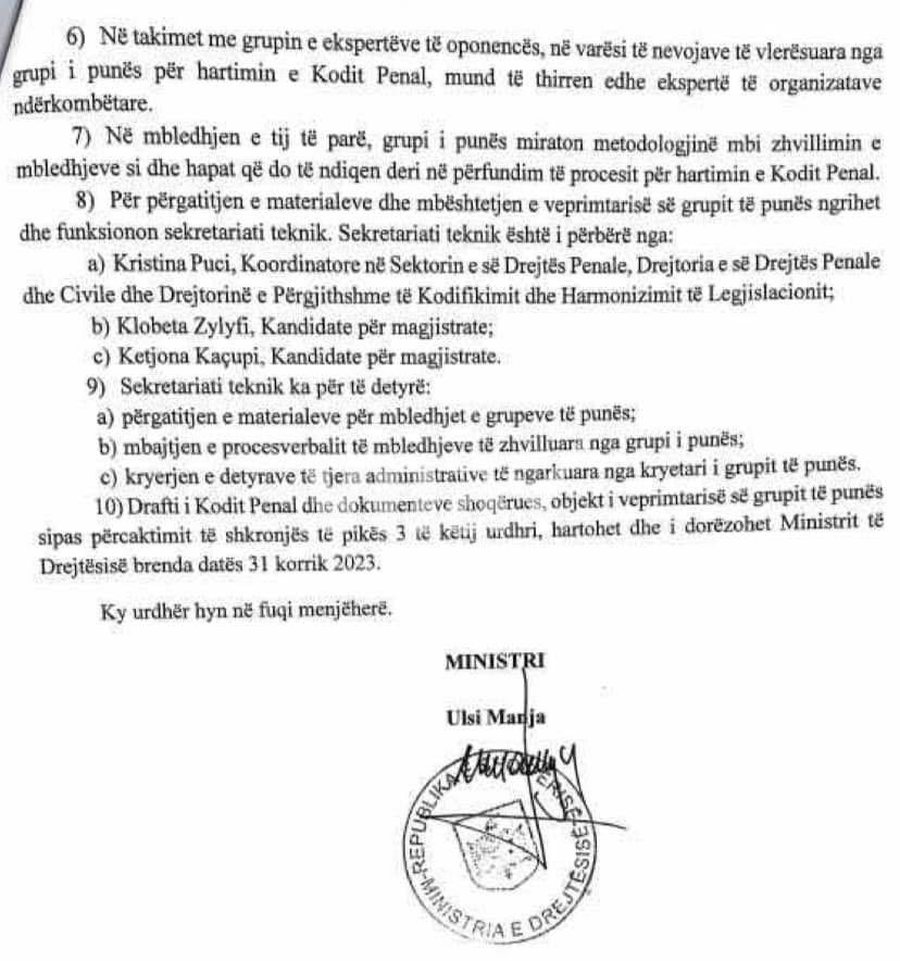
Contrary to the idea of a process “independent” from the executive, the document proves that the Ministry of Justice has been not only the initiator, but also active in every step of the draft preparation. In fact, the process for launching the revision of the Criminal Code dates back to 2019, when the Ministry of Justice was headed by Etilda Gjonaj, while the working group began its technical activity six years ago, to receive official approval in 2023.
Beyond political statements, documents signed by the Minister of Justice himself prove that this process was not an initiative "independent of the government", but a reform approved, supervised and organized directly by executive bodies.
The final draft of the new Criminal Code was officially submitted to the Ministry of Justice in July 2023, but it remained on the shelf for almost two years, until it was made public on July 25, 2025, at a fancifully organized event, where the content of the proposed changes was revealed for the first time.




